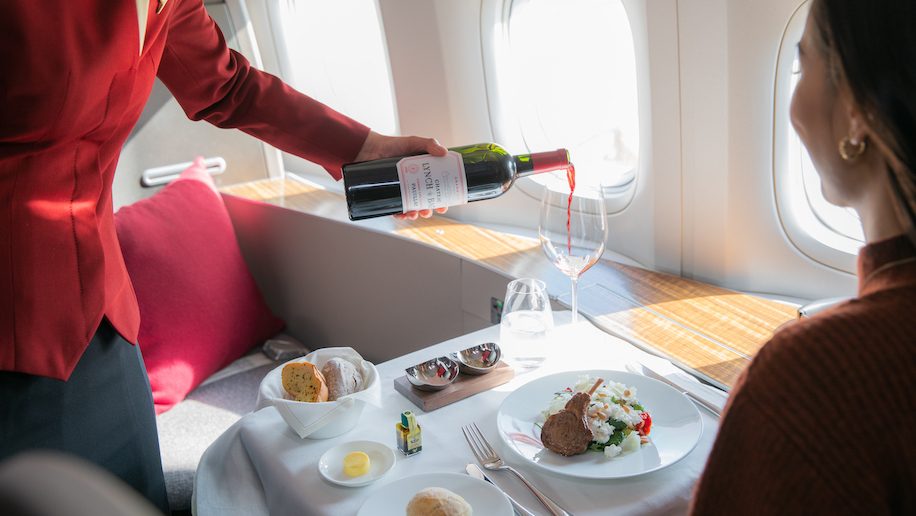
Hong Kong’s flag carrier Cathay Pacific Airways has been making the headlines for all the wrong reasons.
The airline has been publicly criticized for its slow pandemic recovery, and passengers and crew alike have taken to the media to complain about low staff morale in the absence of adequate resources provided.
Passenger complaints often highlighted catering deficiencies at Cathay, especially in the airline’s premium cabins. For instance, one travel writer in a recent review uncovered that Cathay would regularly load just a single bottle of champagne for first class passengers on its first class service to Tokyo’s Haneda.
Cathay cabin crew and their union have corroborated reports like the above.
“After the epidemic, the number of passengers gradually increased as flights resumed, but the company has no intention to resume the previous manpower on each flight […]. We are facing a shortage of both manpower and resources, a significant increase in workload and low salaries,” Cathay’s cabin crew union said in late May.
Cathay this week sought to address these issues by raising cabin crew salaries and offering faster progression through the ranks for some second officers in the cockpit.
“Cathay Pacific is committed to being a competitive employer and continually reviews the remuneration for its people to ensure they are appropriately recognised, while ensuring as a business we are also competitive and sustainable over the long term.
The total take-home pay for Cathay Pacific cabin crew currently comprises monthly basic salary, productivity pay and outport layover allowance.
At the beginning of 2023, Cathay Pacific introduced a 3.3 per cent increment to basic salary and productivity pay for all our cabin crew, and a new outport turnaround allowance that has been in place since February.
From July, this will be raised some more.
“Cathay Pacific will further improve the productivity pay for its cabin crew from July. The additional productivity pay will increase the monthly take-home pay for cabin crew completing typical flying duties during the month by 3-8 per cent.
Taking new-joiner cabin crew members as an example, this means they would earn a total take-home pay of approximately HK$17,000 per month on completing a typical roster of 70 flying hours. In the coming months as the flight schedule and crew flying hours increase, a new-joiner cabin crew member can expect to earn HK$20,000 per month on average,” Cathay said.
For its flight deck crew, the oneworld alliance member today announced a new initiative inviting Cathay Pacific second officers to apply voluntarily for positions as first officers with its low-cost subsidiary HK Express.
Those who apply and are accepted for this opportunity will join HK Express and operate as first officers for approximately two years. They will then have the option to rejoin Cathay Pacific as first officers.
Cathay says this provides an additional career path, which enables second officers to commence first officer training earlier than otherwise would have been the case.
Cathay Pacific director of flight operations, Captain Chris Kempis, said this was “a win-win initiative that also provides HK Express with the pilots it needs in the short term”.
Cathay expects to reach 70 per cent of pre-pandemic passenger capacity levels by the end of 2023, and return to pre-pandemic levels by the end of 2024 only.
Many competing airlines were much quicker at restoring their pre-pandemic networks. Singapore Airlines, for instance, has been recording record revenues in recent financial quarters.











